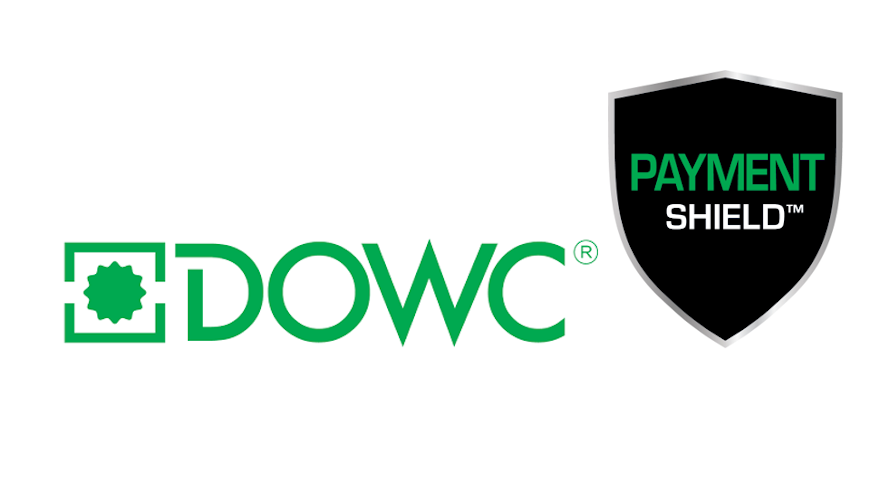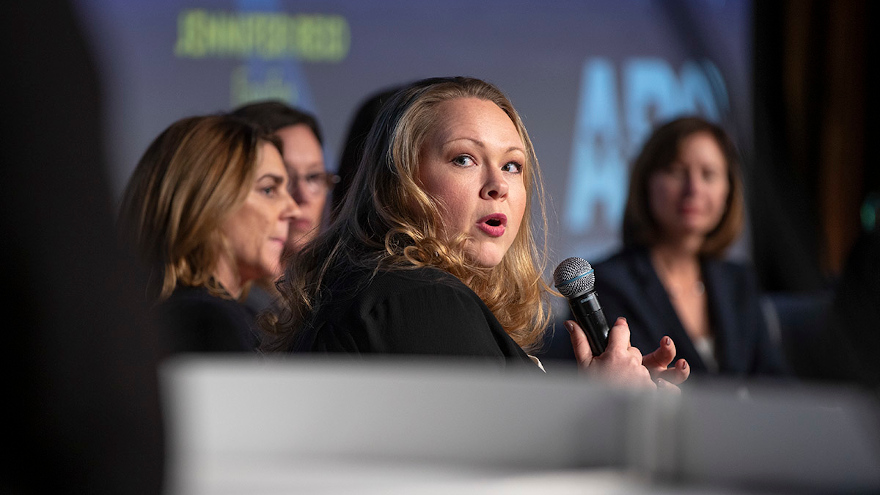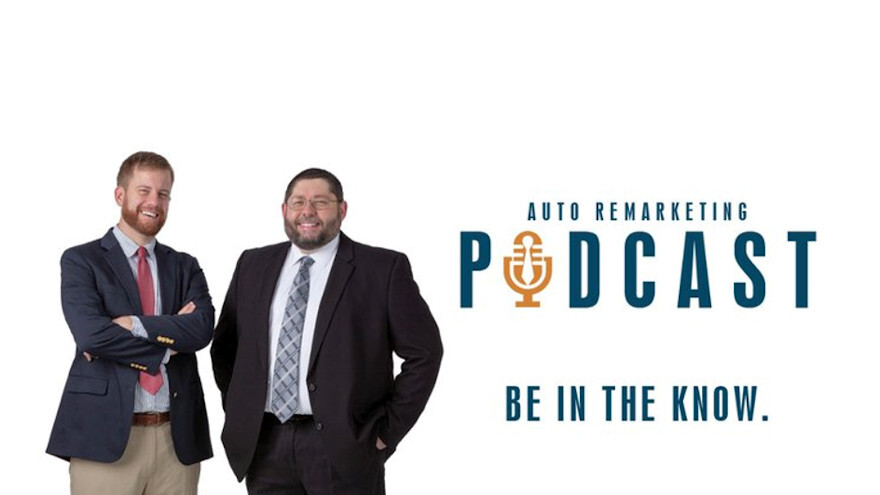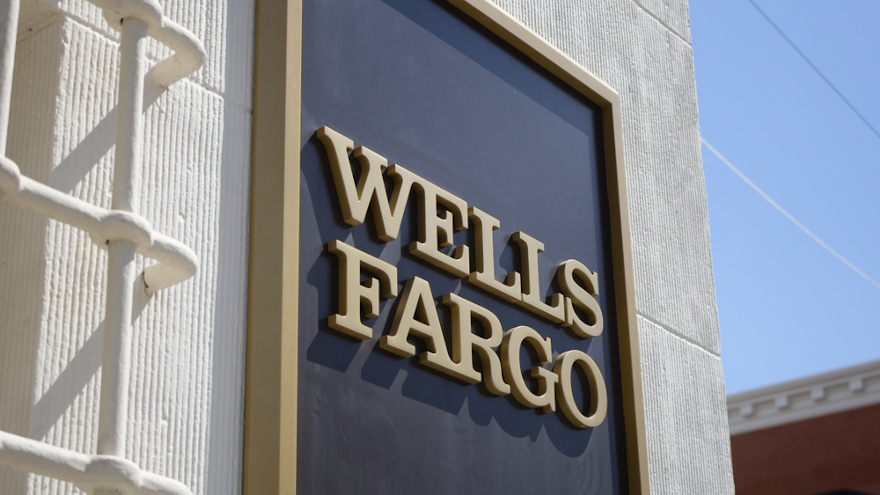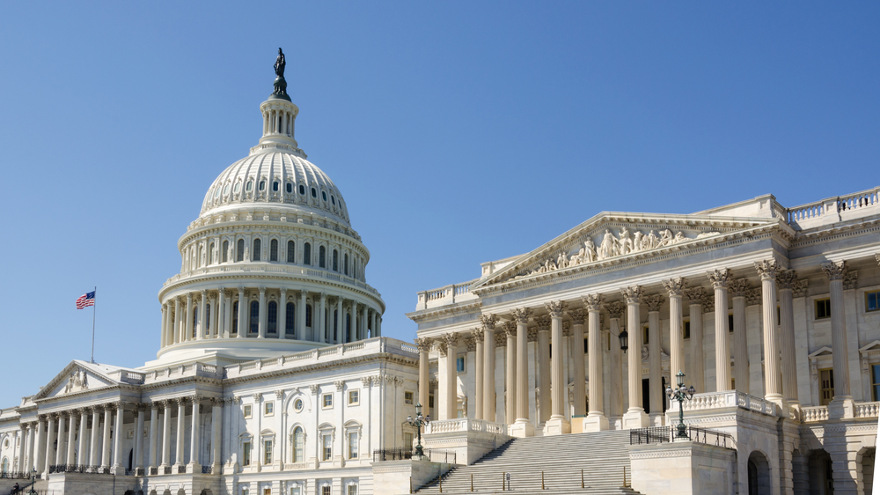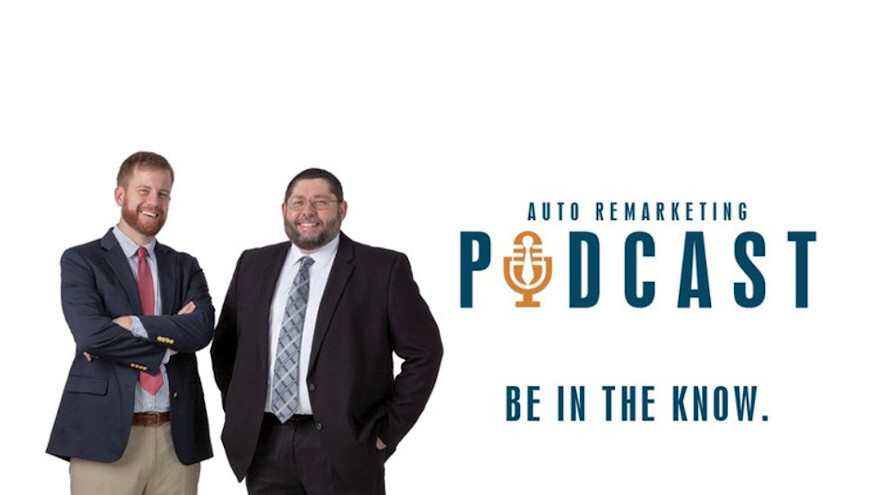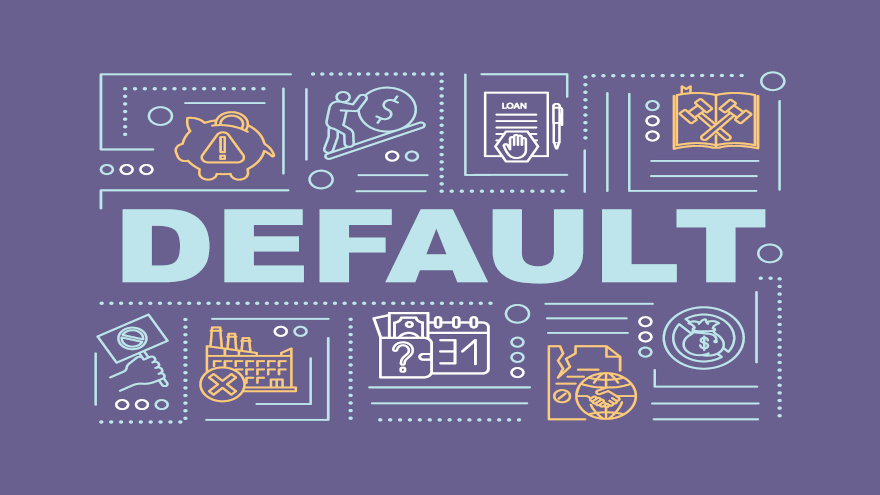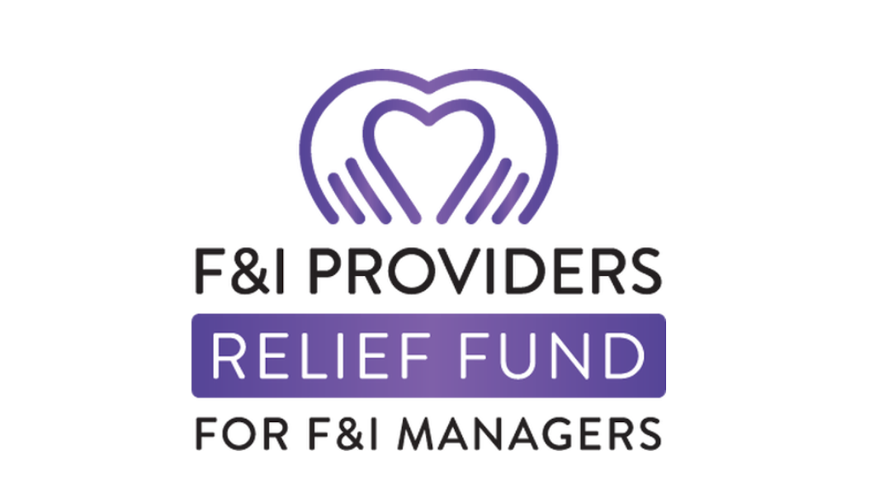With unemployment still at significantly high levels, Dealer Owned Warranty Co. (DOWC) recently introduced a vehicle-payment assistance program to add to its suite of F&I products.
The provider and administrator of F&I products explained PaymentShield can provide reimbursement for up to six months of vehicle payments for consumers who lose their job due to covered circumstances, including pandemics like COVID-19.
PaymentShield is available for new vehicles that are leased or purchased, as well as for installment contracts on used vehicles.
“The unemployment caused by the current pandemic is unprecedented, so we were inspired to develop a program to help dealers provide a level of financial assurance to their customers as they reopen their dealerships,” DOWC founder Michael LaMotta said in a news release. “DOWC products are designed to help drivers when they need it most.”
DOWC’s PaymentShield is a benefit of purchase offered by the selling dealer. When a vehicle is purchased from a participating dealership that offers the program, the consumer is automatically eligible for a predetermined maximum PaymentShield benefit based on the amount that is being financed.
Assuming a maximum PaymentShield benefit of $5,000, for example, a driver could receive a monthly reimbursement for their entire payment for up to six months for monthly vehicle payments up to $833.
To qualify for benefits, DOWC indicated proof of employment at the time of vehicle lease or purchase is required, as well as proof of job loss due to a covered circumstance. Consumers must also be current on their payments and provide proof of payment(s) to be eligible for reimbursement.
PaymentShield now is available to DOWC partner dealers and their customers.
The newest product arrived after the company rolled out two initiatives in May. Coming on the heels of introducing NitroShield, a complete tire and wheel protection product, DOWC launched new 360Shield protection solutions enhanced with new antimicrobial products.
The U.S. Bureau of Labor Statistics (BLS) reported on Friday morning that nonfarm payroll employment increased by 2.5 million in May, and the unemployment rate declined by 1.4 percentage points to 13.3%.
“These improvements in the labor market reflected a limited resumption of economic activity that had been curtailed in March and April due to the coronavirus (COVID-19) pandemic and efforts to contain it,” BLS commissioner William Beach said in a statement that accompanied the new data.
Despite the labor gains, Jennifer Reid of Equifax earlier this week reiterated the importance for dealerships and finance companies to verify income during a time of uncertain employment situations. The vice president – automotive marketing & strategy leader – U.S. information solutions (USIS) at Equifax returned for another episode of the Auto Remarketing Podcast to discuss income verification and more.
Meanwhile, consumers might be more interested in taking on auto-finance debt if their job status is on surer footing.
In May, the BLS indicated employment rose in several major industry sectors, with the largest gains in leisure and hospitality, construction, education and health services, and retail trade. By contrast, the newest updated showed employment in government continued to decline sharply.
“To put the May employment gain of 2.5 million in context, substantial job losses related to the coronavirus pandemic started in March, as payroll employment declined by 1.4 million, as revised,” Beach said. “Job losses deepened considerably in April, as nonfarm employment plummeted by an additional 20.7 million, as revised. At 132.9 million in May, total nonfarm employment is nearly 20 million (or 13%) lower than in February, before the pandemic crisis unfolded in many parts of the United States.
“Furthermore, although unemployment fell in May, the unemployment rate and the number of unemployed people are up by 9.8 percentage points and 15.2 million, respectively, since February,” Beach went on to say.
Figures like those ones are likely why Equifax is seeing surges in demand for its solutions, including the Work Number, according to what Reid mentioned during the podcast.
To listen to this episode, click on the link available below, or visit the Auto Remarketing Podcast page.
Download and subscribe to the Auto Remarketing Podcast on iTunes or on Google Play.
In a separate letter where the firm’s president and chief executive officer acknowledged, “the news will not always be positive,” Kroll Bond Rating Agency (KBRA) compiled a lengthy report this week, examining the potential long-term ramifications of finance companies making contract modifications with their customers because of COVID-19.
While analysts applauded the modification efforts finance companies are utilizing, KBRA also cautioned the auto-finance industry that “if used incorrectly, modifications simply delay the inevitable.”
Analysts said in the report, “In general, we believe loan modifications are an important loss mitigation tool for loan servicers and, when used appropriately, ultimately benefit borrowers and ABS investors. From a positive perspective, they can reduce default rates and maximize long-term cash flow.
“On the other hand, deferrals may delay or reduce short-term cash flow, avoid trigger breaches, delay recognition of losses and dilute overcollateralization,” they added.
KBRA explained that April asset level disclosures showed that early-stage delinquency rates were relatively stable across securitized auto finance pools in March. Analysts contend that the relative month-over-month stability in delinquency rates was likely driven by payment timing, “as we believe most borrowers made their March loan payments prior to the first U.S. states issuing statewide stay-at-home orders, beginning with California on March 19 and, to a lesser extent, loan servicers granting loan modifications for those paying later in the month.”
Meanwhile, KBRA discovered May’s asset-level disclosures — which reflect collections in April and the first full month of pandemic-related stress — showed that early-stage delinquencies fell sharply month-over-month for each of the 21 auto finance issuers that provide asset-level disclosures to KBRA.
The firm added most of those issuers also reported a year-over-year decline.
“At first glance, the month-over-month and year-over-year decline in early-stage delinquencies posted in April seems extraordinary against the backdrop of the unemployment rate skyrocketing to a previous unimaginable 14.7% during the month,” KBRA said in the report.
“Enhanced unemployment benefits and federal stimulus checks likely played some part in lowering delinquency rates in April, as we believe the majority of securitized auto loan borrowers were eligible for at least some level of stimulus,” analysts continued. “However, we think the large percentage of borrowers receiving loan modifications during the month was the main driver.
By the end of April, KBRA determined the percentage of consumers with an actively modified contract ranged from 2.0% to 12.1% for securitized prime auto pools and 7.1% to 21.3% for non-prime pools, up significantly from prior months.
“Based on our discussions with issuers, we believe borrower modification requests began to level off in April. However, given that most issuers provided borrowers with two to four months of payment relief, we expect portfolio modification rates to remain elevated into the summer months,” analysts said.
“To reiterate, we believe that loan modifications can be a helpful tool for reducing delinquency and default rates, as it allows borrowers to manage a period of short-term financial difficulty. However, if used incorrectly, modifications simply delay the inevitable, pushing out losses and increasing tail risk to a securitization,” analysts went on to say.
KBRA supported its assertions by pointing out that approximately 95% and 80% of customers in prime and non-prime pools, respectively, who received a contract modifications in April were one to 29 days past due on their monthly payment.
“This suggests that lenders are not managing the timing of losses by giving already serious delinquent borrowers a loan extension,” analysts said.
Letter from KBRA’s president and CEO
Meanwhile, a day after releasing that auto-finance report, KBRA president & CEO James Nadler sent a letter to its industry customers. The body of the message is published here:
To our valued customers:
On behalf of the entire KBRA global organization, I would like to extend our heartfelt thoughts to anyone who has been personally affected by this unprecedented virus and civil unrest. As countries around the world collectively move toward brighter and more stable times, we must keep alive the memories of those who succumbed to the virus, even as we comfort our family and neighbors, and honor the everyday heroes who are helping in the recovery.
KBRA started 10 years ago this summer in the aftermath of the great financial crisis that was building over many years. Our founding principle was a simple promise to investors: provide the market with timely, valuable, and transparent research and ratings. Your response over the interim years has been humbling as not only have you accepted our core values —innovation, collaboration, and integrity to drive forward-looking market research and credit ratings—but your belief in our mission has helped our company become the world’s largest post-crisis rating agency.
Our commitment to you is equally as strong and we view your trust as our primary responsibility. As the world has awakened to turmoil and uncertainty, KBRA has worked diligently to produce investor research that looked beyond the headlines. We are proud to say that our countless outreach calls and engagement with market participants across the entire spectrum of our rating universe has led to the publication of more COVID-19 impact research than any of our competitors. And rest assured that our commitment to you will not end when the crisis is over. We will always provide you with the research and analysis you need to understand the markets during stressful times and good times.
The news will not always be positive. We are in the middle of an unprecedented crisis and some credit trends continue to deteriorate. We believe rating actions that are ill-timed or too broad can be misleading; timing and transparency are critical. At KBRA, all of our rating actions include a thorough and robust explanation backed by experienced analyst teams.
If one positive thing can come out of this crisis, it is that we have broadened and deepened our relationships with all of our valued clients. As we look to the future — one that may look very different — we promise to maintain our renewed and deeper relationships, along with providing you the best that KBRA has to offer.
Again, I thank you for your support over the last decade and look forward to building stronger relationships over the many decades to come.
After being one of the experts who participated during a webinar orchestrated by DRN in April, Receivables Management Association International executive director Jan Stieger discussed collections and more during this special episode of the Auto Remarketing Podcast.
Stieger also touched on how well auto-finance companies and other creditors have worked with their customers who have been negatively impacted during the coronavirus pandemic.
To listen to this episode, click on the link available below, or visit the Auto Remarketing Podcast page.
Download and subscribe to the Auto Remarketing Podcast on iTunes or on Google Play.
Wells Fargo closed 2019 by holding 3.67% of the auto-finance market, according to data from Experian Automotive shared exclusively with SubPrime Auto Finance News. That market share positioned the bank to rank sixth in Experian’s data set.
But the decision Wells Fargo made to stop accepting financing applications from many independent dealerships might make it difficult to hold that market share position.
The bank confirmed other media reports in a statement to SubPrime Auto Finance News about reducing its business dealings with independent stores.
“Like lenders across the country, we are doing everything we can to help customers weather the economic impacts of this health crisis, including offering loan deferrals to customers who need them if they’ve been impacted by COVID-19,” Wells Fargo said in the statement.
“As a responsible lender, we also have an obligation to review our business practices in light of the economic uncertainty presented by COVID-19 and have let the majority of our independent dealer customers know that we will suspend accepting applications from them,” the bank continued. “The independent dealers we will continue doing business with are those with deep, long-standing relationships with Wells Fargo.”
Wells Fargo’s decision was initially reported online here by CNBC. The bank’s action also arrived as the institution’s portfolio made gains during the first quarter.
Wells Fargo reported that its automotive portfolio rose $3.7 billion year-over-year during the first quarter and $695 million on a sequential basis. The bank also highlighted that Q1 originations climbed 19% year-over-year “reflecting a continued emphasis on growing auto loans following the restructuring of the business.”
But those Q1 originations also softened 5% from the fourth quarter, “reflecting a slowdown in March due to COVID-19,” according to the Wells Fargo.
Wells Fargo reducing its interaction also arrives at a time when independent stores stilled are trying to get their business back in motion completely despite the ongoing coronavirus pandemic, according to the latest survey by the National Independent Automobile Dealers Association.
The NIADA COVID-19 Dealer Impact Survey of 846 independent operators conducted from May 9-14 — a follow-up to a survey orchestrated by NIADA a month earlier — found 63% of the dealerships that had furloughed or laid off employees a month earlier have started the process of bringing them back.
Overall, NIADA indicated 34% of the independent dealers said they are rehiring staff, 20% said they are not and 47% said the question was not applicable, meaning they had remained at a full-staffing level throughout the COVID-19 pandemic That was the same percentage as the previous survey.
Soon after deciding to waive membership and education fees for current and any new RISC Pro members through July 1, RISC launched two additional, state-specific collateral recovery training courses as part of its growing CARS National Certification Program.
The compliance services company highlighted the courses are focused on Texas and Rhode Island and arrived through its alliance with Hudson Cook.
RISC pointed out Texas is a large market for collateral recovery and has very specific state guidelines.
“It’s important that recovery agencies in Texas and Rhode Island have the detailed knowledge of what can affect their day-to-day operations and keep them safe,” RISC president Holly Balogh said in a news release.
RISC indicated the CARS certification is accepted by all domestic lending institutions and is completed by more than 4,000 people annually. The courses are available on RISC’s Education Platform for purchase at https://www.riscus.com/Education/EcomCars.
RISC Pro members are able to take any education program available for their small monthly membership fee including these new state-specific courses.
The repossession industry is taking swift action to position itself to survive the dire situation intensified by the COVID-19 pandemic.
First, the American Recovery Association (ARA) started an initiative several weeks ago that’s resulted in the Repo Alliance, a fundraising organization to boost lobbying and other industry promotion efforts.
Also, ARA compiled a seven-page whitepaper that aimed at setting uniform operating standards for repossession agencies.
The Repo Alliance is the combination of ARA along with the California Association of Licensed Repossessors (CALR), Texas Accredited Repossession Professionals (Texas ARP) and Harding Brooks Insurance.
“We are working with other industry lobbyist groups but have realized without our own voice,” officials said in information sent to SubPrime Auto Finance News. “We would be trusting the future of the recovery industry to the priorities of others. Riding the coattails of these other groups puts our agenda as simply an afterthought.”
The alliance spelled out a trio of goals, including:
• Change the negative, reputational image of the recovery industry
• Educate legislatures of the vital role repossession agents play
• Fight against language in bills or guidance from regulators and lawmakers that could decimate the recovery industry
CALR president Marcele Egley said, “We are an industry without a voice. Hiring a lobbyist in Washington, D.C. will give us a voice to help us fight the good fight.”
While the Repo Alliance is looking to raise money, only a lobbyist is being paid for services rendered. Officials said the rest of the individuals involved in the Repo Alliance are volunteers.
As of Wednesday, the site indicated $52,225 already had been collected.
Texas ARP president Stephanie Findley said, “I am on board 100% with this important Industry-wide initiative to hire a lobbyist.”
More details about the project and a path to contribute fund can be found at www.RepoAlliance.com. Check payable to the Repo Alliance also can be sent to:
Repo Alliance
1400 Corporate Drive
Suite 175
Irving, Texas 75038
Harding Brooks vice president Mike Peplinski added, “A lobbyist is needed for the repossession industry to protect the industry’s future. We are committed to helping in this cause.”
Details of ARA whitepaper
In a separate move, ARA this week in an industry announcement shared details about its whitepaper titled, “Setting Uniform Standards for Operating in a Changed Environment.”
A portion of the seven-page document gives a comparison of repossession agency operating costs in 2000 versus 2020. The most notable differential fell in the technology category.
Authors explained 2000 technology costs came in at about $20 a month for a basic fax machine. In 2020, that cost spiked to $10,000 per month for cameras and other equipment.
“For repossession company owners though, the current financial landscape is precarious,” ARA wrote in the whitepaper. “While many are eager to get back to work, the difficult economic realities of the last few years have now been greatly compounded by the effects of the COVID-19 crisis.
“Consequently, it has become incredibly challenging to afford continuing to operate in the recovery space and a change to the status quo is needed immediately,” the association continued. “Establishing a new economic model and adopting universally accepted industry standards are essential next steps.”
The entire whitepaper can be downloaded on this website.
Like so many individuals, TransUnion described the auto-finance industry as healthy before the coronavirus pandemic arrived in earnest more than two months ago.
And in a special episode of the podcast, TransUnion senior vice president and automotive business leader Satyan Merchant described how he and fellow analysts will be monitoring auto-finance performance similarly to healthcare professionals.
As far as the first-quarter data, TransUnion reported delinquencies remained stable with contracts 60 days or more past due coming in at 1.37%. While analysts noted the last reading represented a slight uptick over the same period last year, the measurement has remained within a delinquency variation of 10 basis points for 11 straight quarters.
TransUnion determined the average new account balance continued to grow during the first quarter and reached an average of $22,764 per consumer — a 2.9% year-over-year increase. Analysts explained this movement stemmed largely due to consumers moving toward larger and more expensive vehicles such as trucks and SUVs.
While the average amount financed continued to rise, TransUnion noted the average monthly payment grew at a slower rate due to lengthening contract terms and a recent decline in annual percentage rate.
In fact, TransUnion pointed out APRs experienced their first year-over-year decline in Q4 2019 after 10 consecutive quarters of growth. Despite concerns around auto affordability, originations grew 3.1% year-over-year in the fourth quarter, compared to 1.7% year-over-year in Q4 2018.
“Last quarter the auto market exhibited strong year-over-year origination growth and steady delinquencies, highlighting the underlying health of the market pre-COVID-19. In the current environment, external pressures such as high unemployment rates and low consumer confidence will exacerbate affordability challenges and impact future growth in the auto-finance market,” Merchant said in a news release.
“We anticipate the auto market will continue to face challenges in the wake of COVID-19 as dealers will be forced to transition away from brick and mortar operations,” he continued. However, we can expect digital innovation to help transform the space with an increasing number of consumers looking to such channels to initiate and complete the car-buying process.”
The information arrived from TransUnion’s Q1 2020 Industry Insights Report and Monthly Industry Snapshot Report that features insights on consumer credit trends around personal loans, auto financing, credit cards and mortgage loans. For more information, you can also register for the TransUnion Q1 2020 IIR Webinar on this website.
Additional resources for consumers looking to protect their credit during the COVID-19 pandemic can be found at transunion.com/covid-19.
Q1 2020 Auto Loan Trends
|
Auto Lending Metric
|
Q1 2020
|
Q1 2019
|
Q1 2018
|
Q1 2017
|
|
Number of Auto Loans
|
83.8 million
|
82.2 million
|
79.7 million
|
76.4 million
|
|
Borrower-Level Delinquency Rate (60+ DPD)
|
1.37%
|
1.31%
|
1.32%
|
1.30%
|
|
Average Debt Per Borrower
|
$19,302
|
$18,845
|
$18,581
|
$18,386
|
|
Prior Quarter Originations*
|
6.9 million
|
6.7 million
|
6.6 million
|
6.7 million
|
|
Average Balance of New Auto Loans*
|
$22,764
|
$22,128
|
$21,678
|
$21,071
|
*Note: Originations are viewed one quarter in arrears to account for reporting lag. Source: TransUnion
And for the conversation with Merchant about the latest data and more,
click on the link available below, or visit the Auto Remarketing Podcast page.
Download and subscribe to the Auto Remarketing Podcast on iTunes or on Google Play.
For the second month in a row, the auto-finance portion of the S&P/Experian Consumer Credit Default Indices for April dropped to the lowest level in 10 years, even as the U.S. Department of Labor said another 2,438,000 workers made initial claims for unemployment benefits last week, pushing the nine-week total to nearly 39 million because of the coronavirus pandemic.
S&P Dow Jones Indices and Experian released their data through April on Tuesday and indicated the auto-default rate dropped 15 basis points to 0.66%. The rate actually has declined each month so far this year.
However, the jobless claims certainly could be an ingredient to push the default rate in the opposite direction. For perspective, information from S&P Dow Jones Indices and Experian from March 2010 showed the auto default rate stood at 2.35% as the U.S. continued to recover from the Great Recession, which federal officials pegged as happening from during the 18-month stretch from December 2007 to June 2009.
During the Great Recession, the unemployment rate peaked at 10.1% in October 2009, according to a report from the Federal Reserve Bank of Cleveland. On Thursday, the Labor Department said the advance seasonally adjusted insured unemployment rate came in at 17.2% for the week ending May 9, an increase of 1.7 percentage points from the previous week’s revised rate.
“Available economic data for the current quarter show a sharp drop in output and an equally sharp rise in unemployment. By these measures and many others, the scope and speed of this downturn are without modern precedent and are significantly worse than any recession since World War II,” Federal Reserve chair Jerome Powell said in prepared remarks during a hearing hosted on Tuesday by the U.S. Senate Banking Committee.
“This precipitous drop in economic activity has caused a level of pain that is hard to capture in words, as lives are upended amid great uncertainty about the future. In addition to the economic disruptions, the virus has created tremendous strains in some essential financial markets and impaired the flow of credit in the economy,” Powell continued.
Should unemployment push defaults higher, the rises would primarily be connected to lower readings seen in April.
S&P Dow Jones Indices and Experian reported that the composite rate — which represent a comprehensive measure of changes in consumer credit defaults — dipped 9 basis points lower to 0.90%. With the exception of January and February when the composite rate stood at 1.02%, the reading has remained below 1.00% each month since March 2015.
Back in March 2010, the composite rate stood at 4.10%
Turning back to April data, analysts also mentioned the first mortgage default rate fell 11 basis points to 0.66%, while the bank card default rate rose 29 basis points to 4.23%.
Looking at the latest information from the five largest U.S. cities, S&P Dow Jones Indices and Experian determined a trio posted decreases in April.
Chicago produced the largest decrease, dropping 15 basis points to 1.06%. Dallas fell 13 basis points to 0.88%, while New York dipped 4 basis points to 0.95%.
Miami’s rate increased 11 basis points to 1.54% while Los Angeles’ reading ticked up 3 basis points to 0.74%.
Jointly developed by S&P Indices and Experian, analysts noted the S&P/Experian Consumer Credit Default Indices are published monthly with the intent to accurately track the default experience of consumer balances in four key loan categories: auto, bankcard, first mortgage lien and second mortgage lien.
The indices are calculated based on data extracted from Experian’s consumer credit database. This database is populated with individual consumer loan and payment data submitted by lenders to Experian every month.
Experian’s base of data contributors includes leading banks and mortgage companies and covers approximately $11 trillion in outstanding loans sourced from 11,500 lenders.
Secretary of the Treasury Steven Mnuchin, who also appeared during Tuesday’s Senate Banking Committee hearing, tried to remain upbeat about the U.S. economy and its future.
“We are sympathetic to hardworking Americans and businesses enduring tremendous challenges due to the COVID-19 pandemic,” Mnuchin said in his prepared remarks. “We have had to take unprecedented steps to shut down significant parts of the economy in the interest of public health. As a result, in the second quarter of this year, we are continuing to see large unemployment and other negative indicators. It is important to realize that the large numbers represent real people. This is why it is so important to begin bringing people back to work in a safe way.
“As we listen to medical experts, we are optimistic about the progress being made on vaccines, antiviral therapies and testing,” he continued. “Working closely with governors, we are beginning to open the economy in a way that minimizes risks to workers and customers. We expect economic conditions to improve in the third and fourth quarters.”
Personnel within one of the most important dealership departments still need help as the coronavirus pandemic continues.
Organizers of the F&I Providers Relief Fund for F&I managers have raised more than $500,000 in only about a month — half of its $1 million fundraising goal — but the board is still looking for donors to meet the overwhelming need for financial assistance grants to F&I managers.
Only about three weeks after announcing a seven-member board of directors and $1 million fundraising goal, the F&I Providers Relief Fund for F&I managers has raised $507,220 as of Tuesday from more than 40 F&I providers and industry leaders.
According to a news release, $444,500 has been awarded in financial assistance grants to F&I managers.
Despite the success in fundraising so far, fund officials said grant requests keep pouring in, and the board is looking to raise more funds to keep up with demand.
Nearly 600 grant requests have been submitted since the charity launched in late April, and the board reviews requests daily to keep the award process moving quickly. Feedback from those not only receiving grants, but simply requesting has been gracious to say the least, according to fund officials.
Some examples of comments for grant applicants include:
“Words cannot begin to express my gratitude for this grant. This grant will help me to continue to feed and take care of my family. I just can’t believe it’s true. Thank you from the bottom of my heart.”
“I can’t tell you enough how appreciative I am for your kindness as a group. We deal with money and sometimes large amounts, but what your organization has granted will definitely help during these difficult times.”
“Thank you for considering me for the grant to help out in this tough time we are living in. Thanks for what you all are doing … means a lot!!”
National Auto Care chief executive officer and F&I Providers Relief Fund founder Tony Wanderon offered this reaction to the success of the entire initiative so far.
“We are ecstatic over the generosity of our donors so far, and we have made such an impact on F&I managers and their families who have dealt with pay cuts or job loss during this difficult time,” Wanderon said in a news release.
“But we continue to see an overwhelming need for aid from these industry professionals. As of now, we have disabled the grant application portal on our website and have shifted our focus to processing existing grant requests and re-launching our fundraising campaign to make it to our $1 million goal,” he continued.
Though the Relief Fund board was committed to fundraising only within the F&I providers community, the group is considering opening fundraising to agents and other professionals simply to keep up with demand.
“Our applicants have faced serious hardships due to the financial impact of COVID-19. Their stories are heartbreaking, and the professionals who have been awarded grants are so grateful to be able to keep up with bills and keep food on the table for their families,” said Kelly Price, chief executive officer of NAE/NWAN.
Price’s existing 501(c)3 charity — Changing Lives Foundation — has handled the administration of the F&I Providers Relief Fund, ensuring grant applicants can receive funds tax-free.
“In order to continue the good work that we have already done, we have to continue fundraising,” Price said.
Along with Wanderon and Price, the F&I Providers Relief Fund board of directors also includes:
— StoneEagle CEO Cindy Allen
— VAS president Bill Breindel
— Assurant senior vice president Daniel Lenczner
— EasyCare/GWC Warranty president John Lee
— Houlihan Lokey managing director Craig Tessimond.
F&I providers can visit the site to contribute to the fund and view a list of the companies that have contributed at www.changinglivesfound.org/fandiprovidersrelieffund.

